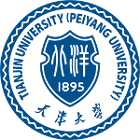
-
Student

To ensure the quality of graduate student education, our lab strictly controls the number of student members. Typically, there is only one Ph.D. and two M.Sc. opening positions in our lab every year. Students, who are interested in integrated optics, nanophotonics, fiber sensing, and spectroscopy, are welcome to join us. Please contact us for details.
-
Postdoctor

There is one postdoctoral opening position in our lab. We provide a top-tier academic environment and an attractive salary to each researcher. Please contact us for details.
-
Administrative Assistant

Our lab usually provides one part-time research assistant position for undergraduate students in the School of Precision Instruments and Opto-Electronics Engineering at Tianjin University during summer and winter vacations. Please contact us for details.
-
FAQ

Q1. What can students learn in the group?
A1: Students can receive comprehensive training for academic research in the group. Students can learn how to develop photonic chips for various applications. Moreover, Prof. Cheng fosters students' abilities in creative thinking, journal reading, academic manuscript writing, and academic presentation.
Q2. Do students have many opportunities to work closely with the professor?
A2: Yes. Prof. Cheng frequently discusses with students about their projects and works together with students.
Q3. Can students propose their projects for graduation?
A3: Yes. Prof. Cheng encourages students to independently think about their research. Students have opportunities to propose projects for graduation after discussing them with Prof. Cheng.
Q4. What is the requirement for graduation?
A4: Students are required to become qualified researchers before graduation.
Q5. How about students' careers after graduation?
A5: According to students' interests and career plans, Prof. Cheng can recommend students to join famous academic groups for further study or go to the industry. To date, graduate students have joined the PolyU of Hong Kong and Qualcomm.
